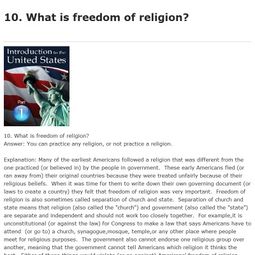Understanding the Concept of Ar Rahman
 Ar Rahman, a term that resonates deeply within the Islamic faith, is often misunderstood or misinterpreted by those unfamiliar with the religion. To delve into the essence of what religion is associated with Ar Rahman, it is crucial to explore its significance and the beliefs surrounding it.
Ar Rahman, a term that resonates deeply within the Islamic faith, is often misunderstood or misinterpreted by those unfamiliar with the religion. To delve into the essence of what religion is associated with Ar Rahman, it is crucial to explore its significance and the beliefs surrounding it.
Ar Rahman is an attribute of Allah, the one and only God in Islam. It is one of the 99 beautiful names of Allah, each representing a unique aspect of His divine nature. The name Ar Rahman translates to “the Most Beneficent” or “the Most Gracious” in English. It encapsulates the idea of Allah’s infinite mercy, kindness, and benevolence towards His creation.
The belief in Ar Rahman is central to Islamic teachings. It is emphasized in the Quran, the holy book of Islam, and is a fundamental principle that guides the lives of Muslims. The Quran mentions Ar Rahman numerous times, highlighting its importance in the faith. For instance, in Surah Al-Imran, verse 14, it states, “He is Allah, the Everlasting, the Absolute. He is not born, nor is He born. And there is none like Him.”
To understand the significance of Ar Rahman, it is essential to explore its implications in various dimensions of Islamic belief and practice.
Belief in Ar Rahman

The belief in Ar Rahman is rooted in the Islamic concept of Tawhid, which emphasizes the oneness of Allah. Muslims believe that Allah is the creator, sustainer, and the ultimate source of all blessings. Ar Rahman represents Allah’s infinite mercy and kindness, which are bestowed upon His creation without any discrimination.
The Quranic verses that mention Ar Rahman serve as a reminder of Allah’s boundless mercy. For example, in Surah Al-Baqarah, verse 255, it states, “Allah is the Everlasting, the Absolute. He knows what is before you and what is behind you, and nothing is hidden from Him.” This verse highlights Allah’s omniscience and His ability to shower His mercy upon His creation.
Practical Implications of Ar Rahman

The belief in Ar Rahman has practical implications in the lives of Muslims. It encourages them to be kind, compassionate, and generous towards others. Muslims are taught to seek forgiveness and to show mercy, as they believe that Allah is Ar Rahman and will respond to their prayers with mercy.
The concept of Ar Rahman also finds expression in Islamic rituals and practices. For instance, during Ramadan, the holy month of fasting, Muslims seek forgiveness and express gratitude to Allah for His mercy. The act of fasting is seen as a means to cleanse the soul and seek Allah’s mercy.
Moreover, the belief in Ar Rahman influences the way Muslims interact with others. It teaches them to be patient, forgiving, and understanding. Muslims are encouraged to help those in need and to show compassion towards all living beings.
Ar Rahman in Islamic Art and Literature
Ar Rahman has been a source of inspiration for Islamic artists and writers throughout history. Many Islamic artworks and literary pieces depict scenes that reflect the mercy and benevolence of Allah. These creations serve as a reminder of the importance of Ar Rahman in the Islamic faith.
For example, in Islamic art, the image of Allah is often depicted through symbols and attributes, such as the crescent moon and the star, which represent Ar Rahman. Similarly, in Islamic literature, the theme of mercy and benevolence is frequently explored, emphasizing the significance of Ar Rahman in the lives of Muslims.
Ar Rahman in Comparative Religion
While Ar Rahman is a unique attribute of Allah in Islam, the concept of mercy and benevolence is shared by other religions. In Christianity, Jesus Christ is often referred to as the “Son of Man,” symbolizing His compassion and mercy towards humanity. In Hinduism, Lord Krishna is revered for His kindness and benevolence.
The belief in a divine being who embodies mercy and benevolence is a universal theme across different religions. While the expressions and interpretations may vary, the essence of seeking mercy and benevolence remains constant.
Conclusion
Ar Rahman, as an attribute of Allah in Islam, represents the infinite mercy and kindness of the divine. It is a fundamental belief that guides the lives of Muslims and influences their interactions with others. The concept of Ar Rahman finds expression in various dimensions of Islamic belief, practice, and art. By understanding the significance of Ar Rahman, one can gain a deeper insight into the Islamic faith and its teachings.







